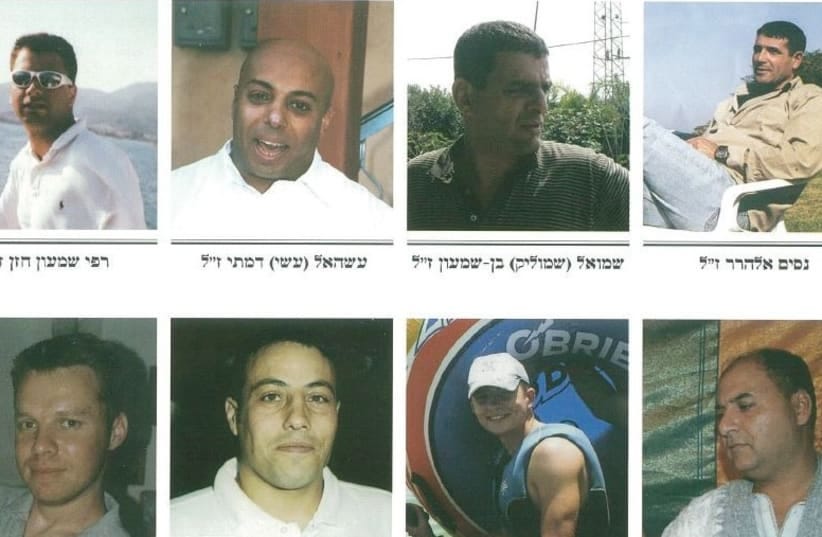Remembering the Day Nasrallah Almost Killed Me
And the 8 train repairmen whose stories I never got to tell
The killing of Hassan Nasrallah has brought me back to the time he almost killed me. It was a period not so different from the one we’re in now. Israel was fighting wars against Hamas in Gaza and Hezbollah in Lebanon at the same time. In this conflict, history doesn’t rhyme, it fucking repeats like a torturously bad Spotify track.
It was July 16, 2006, a Sunday. The 2nd Israel-Lebanon war had begun a few days earlier after Hezbollah ambushed, killed, and kidnapped Israeli soldiers. It was the first day of the Israeli workweek, and the employees of the Haifa train depot, mostly train repairmen went to work like usual. Haifa wasn’t supposed to be in the range of the Katyusha rockets at the time. But the Hezbollah rocket squad had a different idea. They sent over a more sophisticated barrage of missiles, one of which hit the depot directly, spraying shrapnel everywhere. The rocket killed 8 civilian workers, wounding a dozen more, in one of the worst terror attacks ever perpetrated by Hezbollah against Israel. There was no military target nearby.
I was a 26-year-old video journalist working for Current TV at the time, based in Tel Aviv. I wanted to tell the story of the workers and try to understand Hezbollah’s new rocket capabilities. I pitched my producer Laura Ling on Monday, and she was understandably worried. I told her I was going to the train depot to document what had happened on the Sunday. “What are the odds that Hezbollah would attack the same place twice”, I reasoned to her and myself. She reluctantly gave me the green light.
On Tuesday morning, July 18th, 2006, I drove up to Haifa from Tel Aviv with my friend Garret who I recruited to shoot the intro scene in the car. We arrived to an eerily quiet Haifa an hour later. We got to the train depot and began our first interview that morning. We had just started the interview when we heard a rocket fall somewhere in the distance. This was pre-Iron Dome. The errant rocket likely fell into the ocean or was hit by a Patriot defense missile. We immediately stopped the interview and moved to the shelter. The second we closed the shelter door we heard the boom. Upon emerging from the shelter about ten minutes later we realized that the rocket fell in the exact spot we were standing less than 10 seconds earlier.
Two things that we had no control over saved our lives that day. The first was the errant rocket that served as a warning of this new attack happening. Had we not heard this rocket we never would have stopped the interview and moved to the shelter. The second was the mere existence of a fortified shelter within 20 feet of where we were conducting the interview. If it wasn’t there at all or even if it was a few more feet away, I almost certainly would not be typing these words right now.
I kept the camera rolling. Millions of Americans watched “Dodging Katyushas” on cable television on Current TV (RIP) in what I believe was the most popular video in the network’s history. One of those viewers misunderstood the video and sent a message of condolences to my mom. I answered a hysterical call from my mom later that week and remember trying to convince her between sobs that i was not in fact, dead. It was a strange conversation.

So Nasrallah didn’t mean to kill me specifically. With fresh Israeli blood still on the tracks, Hezbollah just doubled down on what they viewed as a successful strike. But this time they missed. Everyone there that day, around 6 of us, made it into the shelter in time. Still not sure if there is greater meaning here but I do think about this day often. Reflecting on it, I feel an overwhelming sense of gratitude for my life. It’s a reminder that I’m living in the bonus round, and to make the most of every day.
And now the guy directly responsible is dead. It feels weird to celebrate the death of any human being. I don’t think I’ve ever actually felt happy to hear of anyone’s death before, but I did feel relieved to read that Nasrallah was no longer. This fundamentalist mass murderer at the very least deserved to meet the same fate that he delivered to hundreds and perhaps thousands of innocent people. I also consider the Lebanese civilians whom Hezbollah has used as human shields to be his victims.
Unfortunately, I never got to tell the story of those 8 Israeli train workers that day, so I’m completing this reporting mission now. The eight men who died were: Shmuel Ben Shimon, 41, of Yokne’am Illit; Asael Damti, 39, Dennis Lapidos, 24, and David Feldman, 28, of Kiryat Yam; Nissim Elharar, 43, and Reuven Levy, 46, of Kiryat Ata; Rafi Hazan, 30, of Haifa; and Shlomi Mansura, 35, of Nahariya.
I was happy to read in the Jerusalem Post that in 2015 these civilians and their families were honored posthumously by the State of Israel for making sure, despite the dangers they faced working in wartime while rockets were raining from the North, that the trains kept running.
Transportation Minister Israel Katz said, “They fell in service to the state,” he said. “If we can honor military heroes and victims of terror, we can certainly honor people who see it as their mission to continue working in wartime.” May their memories be a blessing for their families.
These are the 8 men who were killed on July 16, 2006, when a Hezbollah rocket struck the Haifa train depot. From top left: Rafi Hazan, Asael Damti, Shmuel Ben-Shimon and Nissim Elharrar, and from bottom left: David Feldman, Shlomi Mansoura, Dennis Lapidus and Reuven Levi.
(photo credit: ISRAEL RAILWAYS)


